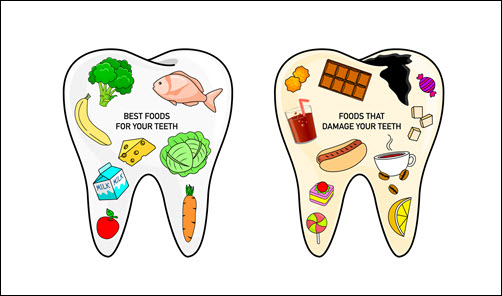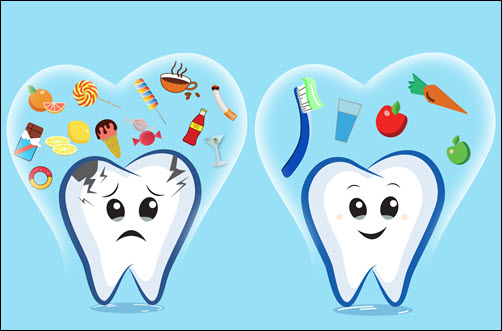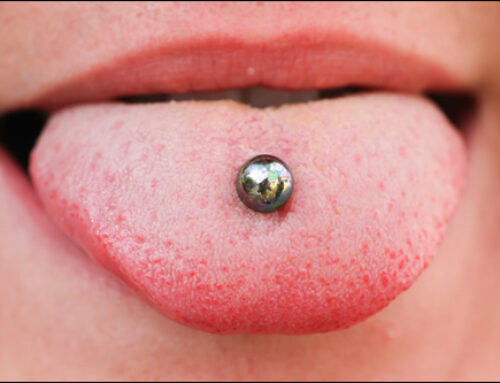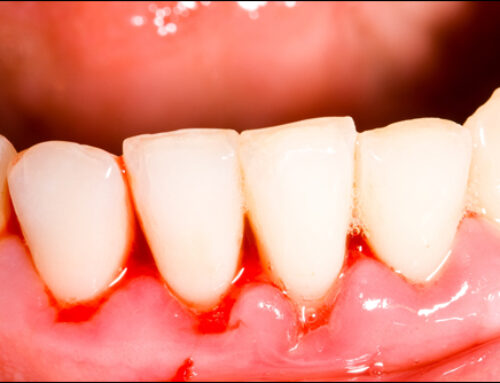Like it or not, sugar is a part of life. You may avoid it as much as possible, but even healthy foods like oranges, carrots, beets, potatoes, and cherries contain sugar. The difference? These natural sugars are a healthier approach than processed sugar. As such, it is important to watch sugar consumption- and not just as a way to manage our weight! Sugar is also damaging, in a variety of ways, to our teeth.
As a child or perhaps as a parent, you have heard a variation of the comment, “Don’t eat sweets because they are bad for your teeth.” But have you ever thought about what is so bad about sugar when it comes to your teeth? Yes, we know about its harmful effects on our overall health, but why is it so bad for our teeth?
Sugar and Your Dental Health
 To be fair, sugar, in and of itself, is not what causes dental problems. Instead, it is the first link in a chain of events that leads to dental problems.
To be fair, sugar, in and of itself, is not what causes dental problems. Instead, it is the first link in a chain of events that leads to dental problems.
- The Combat Zone– Whether good or bad, everything we consume enters the body via the mouth. It is here that both beneficial and damaging bacteria exist. When we intake sugar, these bacteria ‘connect’ and produce more acid, which eats away at your teeth. Your saliva, however, serves an important role. The job of the saliva is to help break down the sugar and prevent acid buildup. But repeated doses of sugar will still cause problems. The more sugary foods and drinks you consume, the harder the helpful bacteria must work to keep acid from eating at your teeth. The more sugar consumed, the greater the job of the saliva, until eventually the acid build-up wins. The acidity weakens the enamel and causes a cavity.
- The Bad Bacteria – As mentioned, the mouth contains both good and bad bacteria. The primary harmful bacteria are Streptococcus mutans and Streptococcus sobrinus. These bacteria combined with sugar result in plaque, the sticky substance your dentist scrapes from your teeth. The longer plaque sits on your teeth, the greater the chance of cavities forming.
- Lower the Mouth’s pH – A healthy mouth pH is a neutral 7. When plaque builds up, the level lowers. A level as low as 5.5 is enough for the acidity to dissolve minerals and destroy enamel. As this happens, small holes or erosions will form. If left untreated, these holes will grow, forming a cavity.
How You Can Minimize Damage to Your Teeth
- Be intentional about dental hygiene. – Brushing twice daily is a great place to start. However, to stay ahead of any plaque buildup, it is even better if you brush after every meal or snack. You can take cavity prevention even further by using fluoridated toothpaste. And if you want to give the saliva a boost so it can fight harmful bacteria between brushings, chewing sugar-free gum can help.
- Don’t forget your dentist appointments! – Those bi-annual dentist appointments are a big part of fighting cavities. The team at Advanced Dental Partners is here to help you maintain your smile and stay ahead of dental problems.
- Watch what you eat. – Avoid sticky foods or those high in sugar. And, when you do have them, be sure to brush your teeth as soon as possible after consumption. You should also minimize your intake of sports drinks, soda, chocolate milk, etc. And when you drink them, don’t sip them slowly over time. The longer you take to consume them, the longer your teeth are exposed to the sugar and the acid it causes.
The link between sugar and dental health is not one to ignore. Take steps to protect your teeth and prevent tooth decay.






